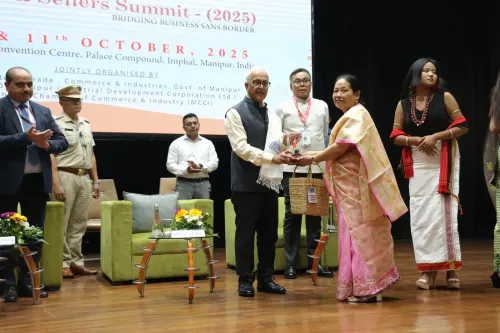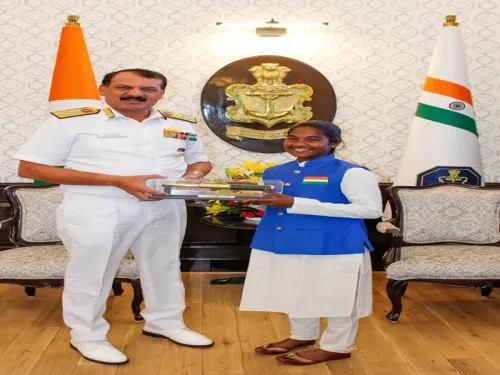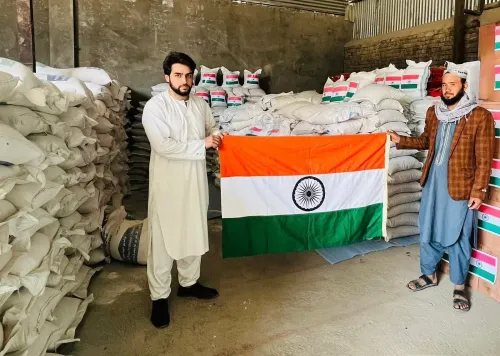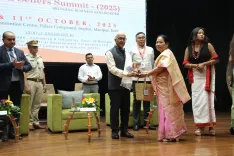Shehla Rashid Critiques 'Narrative Architects' Regarding Indian Army's Conduct in J&K Before Article 370 Repeal
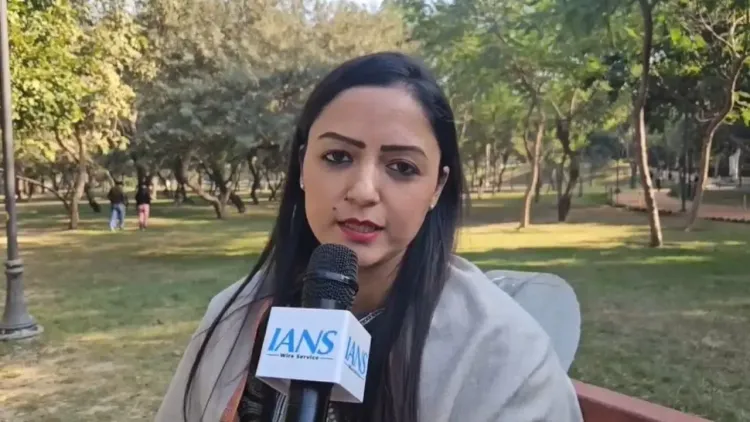
New Delhi, Dec 11 (NationPress) Former Jawaharlal Nehru University (JNU) student and Kashmir-based activist Shehla Rashid shared on Wednesday how her perceptions of the Indian Army changed notably after the abrogation of Article 370 on August 5, 2019, in Jammu and Kashmir (J&K).
In an interview with IANS, Rashid, who is known for her outspoken opposition to the Indian government's policies, reflected on the evolution of her views about the Army, especially in light of the contentious revocation of Article 370, which had provided Jammu and Kashmir with special autonomous status.
“Previously, I was a staunch critic of the Army, but my viewpoint has shifted,” Rashid remarked.
She elaborated, “Before 2019, we often witnessed the Army entering our homes and interrogating individuals. This fostered a negative perception of the Army among the local populace, and I was among those who never questioned it. However, following the abrogation of Article 370, we started to ask, 'What is the root of all this?' It became apparent that a significant portion of the unrest in Kashmir was incited from across the border, with Pakistan sending terrorists into the area.”
Rashid underscored that a lack of critical awareness regarding the broader geopolitical context contributed to the initial negative sentiment towards the Indian Army in Kashmir.
“We neither questioned nor were permitted to inquire about the underlying causes of this conflict,” she noted, reflecting on the enduring strife and the influence of external elements.
Highlighting the sacrifices and risks faced by local soldiers, Rashid acknowledged the bravery and dedication of the Indian Army in the tumultuous region.
“We have witnessed the loss of many soldiers, and even today, we see courageous young soldiers stationed in challenging areas of J&K. The Army has had to conduct searches and interrogations, but this is not out of malice. It stems from the larger geopolitical dynamics and the necessity to protect our borders from terrorism,” she stated.
She further pointed out that while the Indian Army is often linked with militarized actions, it is vital to comprehend the circumstances that lead to such operations.
Rashid, who has documented her experiences and insights in her writings, reiterated the need for questioning the fundamental causes of the Kashmir conflict, particularly concerning Pakistan’s role in fostering anti-India sentiments through terrorism.
“Pakistan has been inciting animosity against India by orchestrating terrorist activities in J&K,” she added.
Rashid also addressed the ongoing crisis of atrocities against Hindus in Bangladesh.
“This issue should not solely fall on the Opposition’s shoulders,” Rashid remarked when questioned about the silence of political leaders regarding the atrocities in Bangladesh.
“If you ask my personal opinion, I cannot represent all Opposition parties. Nevertheless, the Gandhi family should absolutely take a stand on this issue, as it is integral to their legacy.”
She emphasized that it was former Prime Minister Indira Gandhi who played a crucial role in the liberation of Bangladesh, a moment that led to the sacrifice of many Indians and Bangladeshis.
“I hope that the Gandhi family will make a statement on this matter,” Rashid expressed, adding that the legacy of the 1971 war and the birth of Bangladesh should not be overlooked when discussing the current issues facing Hindus in the region.

